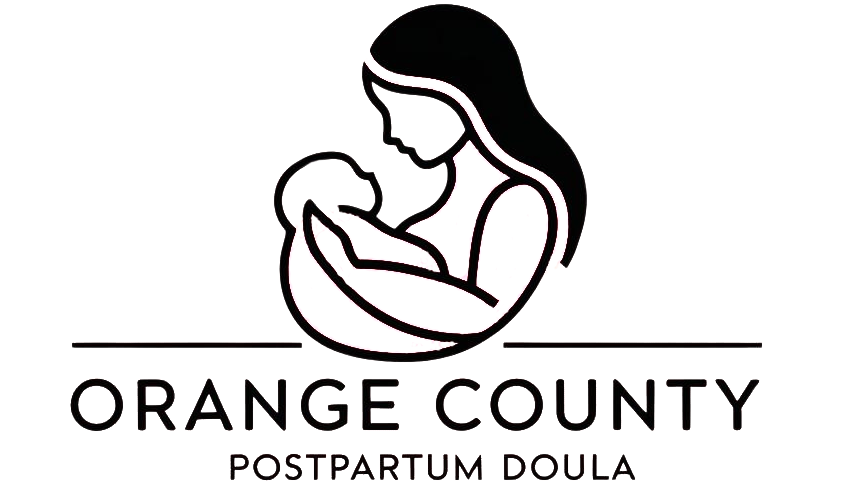More Than the Baby Blues: A Compassionate Look at Postpartum Mood Changes
Welcoming a new baby into the world is often described as a joyful, magical time. But for many new parents (especially mothers) the reality can feel very different. It’s completely normal to feel overwhelmed, exhausted, and emotionally raw after giving birth. However, when those feelings linger or intensify, it may be more than just the “baby blues.”
As a postpartum doula that has supported families through emotional highs and lows of postpartum as well as struggled with my own PMAD, I believe it’s time we start having honest, shame-free conversations about mood changes after birth. I am a firm believer that your mental and emotional health matters just as much as your baby’s.
What Are the "Baby Blues"?
The “baby blues” affect up to 80% of new mothers and typically appear within the first few days postpartum. They’re caused by a sudden drop in hormones after birth, lack of sleep, and the massive life transition of becoming a parent. Symptoms can include: crying for no obvious reason, mood swings, anxiety or irritability, trouble sleeping (even when the baby sleeps), and feeling overwhelmed or emotionally sensitive.
The good news? Baby blues are temporary. They usually resolve on their own within two weeks postpartum. But when those feelings persist, or worsen, it could be a sign of a more serious postpartum mood disorder. When the weepy days come and go, it’s the baby blues. When the weepy days persist longer than two weeks, it’s more.
When It's More Than the Blues
Up to 1 in 5 new moms will experience a postpartum mood or anxiety disorder (PMAD). And it’s not just depression. PMADs include:
Postpartum Depression (PPD) – persistent sadness, hopelessness, guilt, or disconnection from your baby
Postpartum Anxiety (PPA) – excessive worry, racing thoughts, or physical symptoms like a racing heart
Postpartum OCD – intrusive thoughts or compulsive behaviors, often centered around the baby's safety
Postpartum PTSD – typically triggered by a traumatic birth experience
Postpartum Psychosis – hallucinations, delusions, or paranoia, requiring immediate medical care
These are medical conditions, not personal failings. And they are treatable with the right support.
What Does It Feel Like?
Every parent’s experience is unique, but here are some red flags that it’s time to seek help:
You feel disconnected from your baby or afraid to be alone with them
You’re constantly on edge, worrying about things that “might” happen
You don’t feel like yourself and it’s not getting better
You’re struggling to eat, sleep, or function day-to-day
You feel shame, guilt, or like you’re “not a good mom”
If this sounds like you, please know: you are not alone and you are not broken. You’re going through something incredibly common, and incredibly hard.
What You Can Do
The most important step is reaching out. Talk to your OB, doula, midwife, or primary care provider. Ask for a referral to a therapist who specializes in maternal mental health. You can also connect with:
Postpartum Support International (PSI) – www.postpartum.net
Local support groups (many virtual options are available)
A postpartum doula – like me! I provide emotional support, practical help, and a listening ear without judgment
If You’re a Partner or Loved One…
If you notice changes in your partner or friend, offer support without trying to fix it. Say things like: “I’m here for you. What do you need right now?” or “This isn’t your fault. You’re doing your best.” or “You’re not alone. Let’s find someone who can help.” Sometimes, just sitting beside someone and holding space for their experience is the most powerful thing you can do.
Let’s Normalize the Messy Middle
Parenthood isn’t black and white. It’s not just pure joy or pure struggle. Most of the time, it’s both. It’s okay to love your baby and feel overwhelmed. It’s okay to laugh and cry in the same ten minutes. And it’s okay to ask for help.
Postpartum is not just a recovery period, it’s a transformation. And every transformation deserves compassion, care, and support.
You are seen. You are strong. And you are worthy of support.
